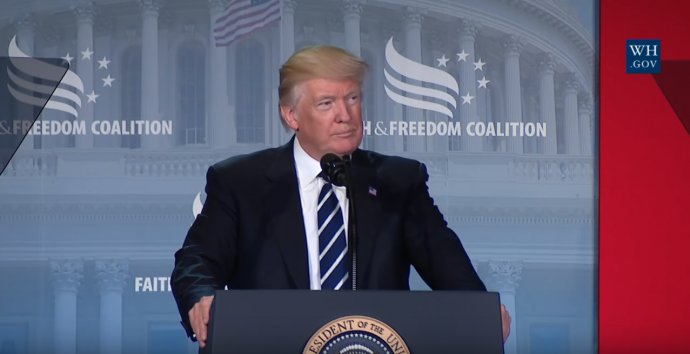Trump recapturing Reagan’s magic is what we have been watching for the past two years. Henry Olsen has a new book out, The Working Class Republican: Ronald Reagan and the Return of Blue-Collar Conservatism, and National Review has published an excerpt. The sub-headline of the post is “The conservative movement would be wise to do the same.”
In order to be successful, of course, Republicans cannot succeed as they should without fighting and winning the information war.
Here is Olsen:
Ronald Reagan often said that he did not leave the Democratic party, the party left him. That statement is usually considered to be mere political fluff, a ruse to make himself politically palatable to the voters who revered FDR and the New Deal. Yet, that view is both condescending and wrong. A close reading of Reagan’s thought shows that he was always more concerned with what government sought to do than the fact that government was used to do it.
Reagan’s preferences always matched those of working-class Americans. Like him, these men and women voted for the Republican Dwight Eisenhower in 1952 and 1956. Like him, these voters were increasingly willing to vote for other Republicans who promised to respect the New Deal’s achievements while maintaining America’s traditional values. Reagan’s political transformation was more thorough and complete than his compatriots’, but it occurred at the same time and for the same reasons.
Despite liberal caricatures that he sought to undo the New Deal, Reagan ran for president on essentially the same platform on which he ran for governor. Government would be trimmed but not repealed; taxes would be cut but not slashed; programs or actions that helped the “truly needy” or assisted average Americans to achieve their dreams would remain in place. Reagan’s two terms did much to halt the growth of a government-directed society, but they did little to undo the legacies of the New Deal — because the man in charge never sought to do that.
Read more: National Review

